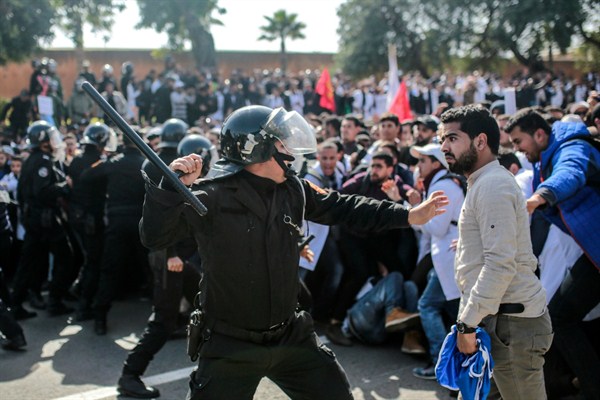Editor’s Note: This article is part of anongoing seriesabout education policy in various countries around the world.
Thousands of teachers went on strike and marched for better working conditions in Morocco in recent months. The waves of demonstrations, which occasionally turned violent as police used water cannons to disperse the protesters, have since subsided as teachers have returned to classes. But there is potential for further unrest if the government doesn’t meet the teachers’ key demand: being accorded full civil servant status. In an email interview with WPR, Aboubakr Jamai, dean of the School of Business and International Relations at the Institute for American Universities in Aix-en-Provence, France, discusses the grievances that drove the teachers’ protests and the extent of their political impact.
World Politics Review: What is driving the Moroccan teachers’ strikes and protests? Are the protesters mainly highlighting long-running grievances, or have new issues cropped up recently?

